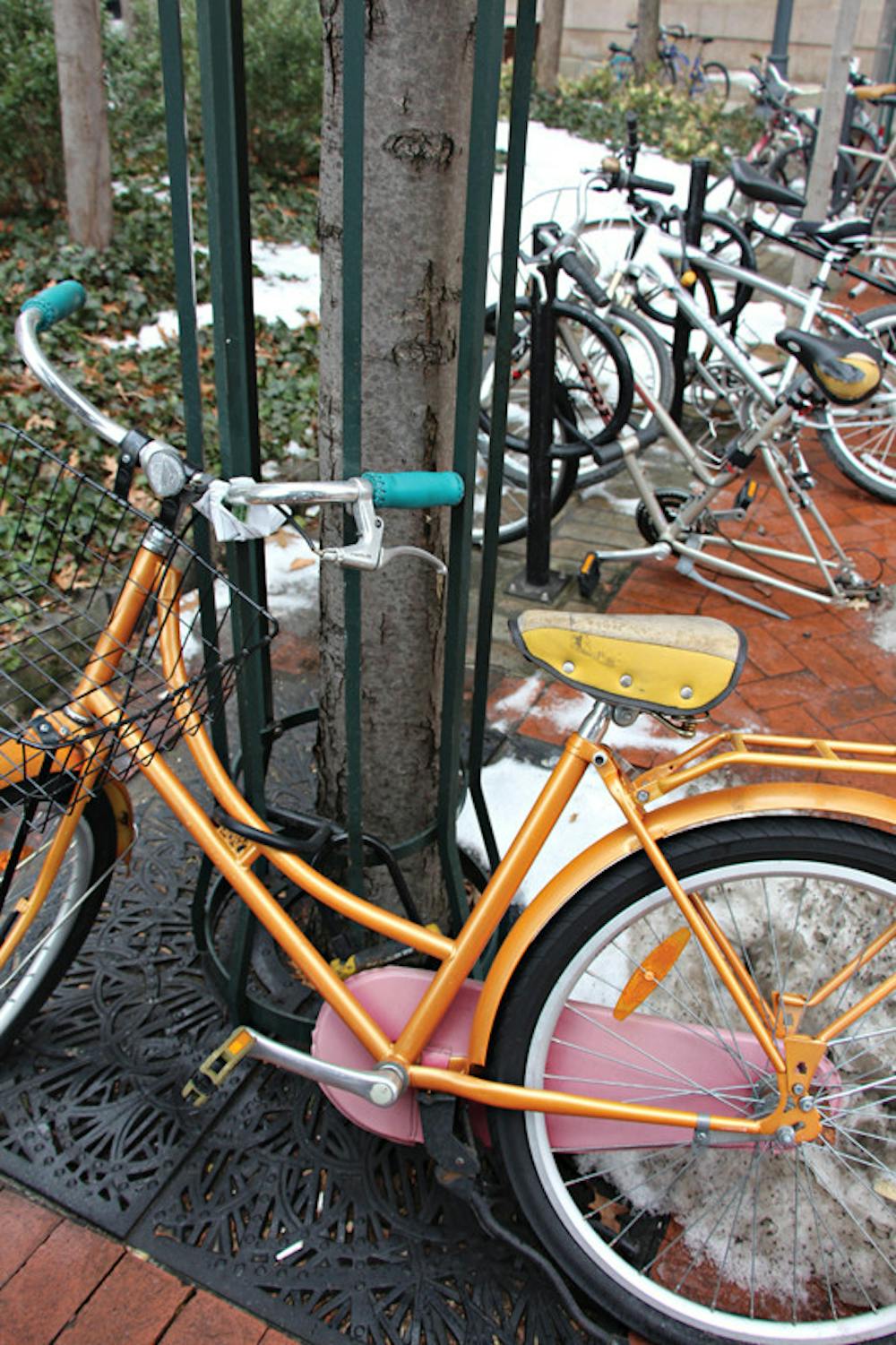As part of Providence’s master plan to expand bicycle travel, the city is negotiating a contract for a new bike share program that would link downtown with College Hill, Federal Hill, the Jewelry District and various places on the east and west sides, wrote Toby Shepherd, director of policy in the office of Mayor Angel Taveras, in a email to The Herald.
The city’s Bike Feasibility study, released in 2011, determined Providence could benefit from a bike share program.
The Board of Contract and Supply voted for Alta Bicycle Share, of Portland, Ore. — which runs existing bike share programs in Boston, New York and Chicago — to oversee management of the project, according to ecoRI News.
The city’s goal was to find an organization with prior success implementing programs in other cities, Shepherd said. Due to financial constraints, the city was looking for an organization capable of raising funds and soliciting sponsorships for the program to spare the city expenses or potentially generate revenue, he added.
Alta plans to procure a sponsorship to help supply approximately $800,000 to launch the program and the annual operations cost, estimated to be $500,000, according to the company’s proposal.
The first phase of the project would feature 20 bicycle stations and 200 bicycles primarily in the “urban core” of Providence, according to the proposal.
Over the course of two to five years, the program would progress into its second phase — expanding to nearby locations and eventually increasing to 40 stations and 400 bicycles.
Among the locations proposed in phase one of the plan would be several locations on College Hill, such as the Rockefeller Library, the Sciences Library, the Rhode Island School of Design and Thayer Street. Other phase-two stations would include Brown’s athletic complex, Waterman Street, Providence College and the University of Rhode Island, according to the proposal.
Customers would be able to purchase “daily, weekly or annual membership” and rent the bike for free the first 30 minutes, with an additional charge every half-hour, according to the proposal. The proposed daily pass is $6, with a three-day pass costing $12 and an annual membership fee $80.
“I think the benefits are many, and they range from environmental to economic to public health,” Shepherd said of the bike share program. “In my mind, it’s all about the quality of life and people who take advantage of it.”
A bike share program would have the potential to attract more businesses to the Jewelry District and create more jobs, said Arthur Salisbury, president of the Jewelry District Association, adding that the association is “in full support of it.”
Leah Haykin ’16, a member of Bikes @ Brown, said she is impressed that “Providence is trying to become more eco-friendly and trying to promote a healthy community.”
Haykin said she is optimistic about the public health benefits a bike share program might bring. “Biking just 20 minutes a day has great health effects,” she said.
But Haykin expressed her concern that Providence lacks the strong bike culture that has made bike share programs successful in other cities, adding that she thinks “it might take a while” for Alta to raise the money necessary for the program.
A bike share program would make biking more of a culturally accepted practice and a viable alternative to cars, said Amelia Rose, co-director of the Environmental Justice League of Rhode Island and chairwoman of the city’s Environmental Sustainability Task Force, but she hopes the program “reaches parts of the community outside of university students.”
“We know in other cities, bike share programs have been great successes, and people have approached them with a lot of enthusiasm and excitement,” Shepherd said, adding that the city will work to make the bike share plan fit Providence’s cityscape.
“One of the issues in the city is just that we’ve got a lot of hills,” which would result in accumulation of bikes at the bottom of hills due to lack of incentive to ride back up, Shepherd said. One proposed solution would be creating paths through other streets, such as Wickenden Street on College Hill, with fewer inclines, Rose said.
“Right now Providence streets aren’t the best to bike on, but that’ll probably change in the next few years,” Haykin said.
Bike shares introduce “a cool factor,” Shepherd said. “They are one of the things that make people excited about urban life and want to live and work here.”

ADVERTISEMENT




